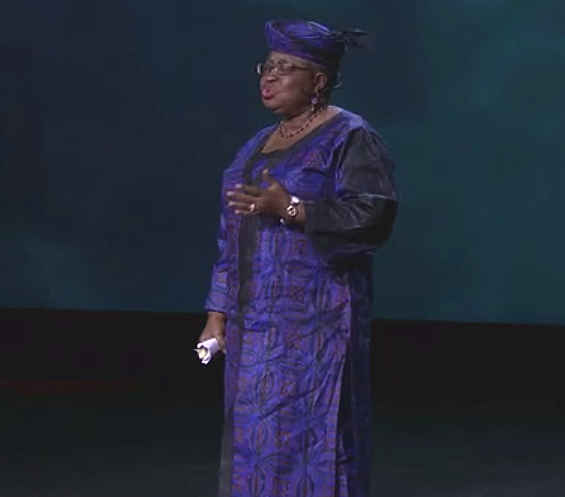But that narrative is being challenged now
然而,这个故事现在遇到了挑战
because the continent has not been doing well in the last two years.
因为非洲大陆在过去两年内一直表现不佳。
It had been growing at five percent per annum for the last one and a half decades,
虽然在过去的十五年里,它都是以每年5%的速度在增长,
but this year's forecast was three percent. Why?
但今年的预估则只有3%。为什么?
In an uncertain global environment, commodity prices have fallen.
在一个不稳定的全球环境下,商品价格下跌。
Many of the economies are still commodity driven, and therefore their performance has slipped.
许多经济体仍然依靠商品驱动,因此他们的表现有所下滑。
And now the issue of Brexit doesn't make it any easier.
而现在“英国退欧”一点儿都没有让这个问题变得更加轻松。

I never knew that the Brexit could happen
我从没想过“英国退欧”的事情会发生
and that it could be one of the things that would cause global uncertainty such as we have.
而这也可能成为造成全球动荡的其中一个原因,正如我们所面临的。
So now we've got this situation, and I think it's time to take stock
所以现在,我们走到了这个情况,我认为这也正是时候去全面审视一番
and to say what were the things that the African countries did right? What did they do wrong?
并且来思考非洲国家做过的哪些事情是正确的?哪些事情是错误的?
How do we build on all of this and learn lessons so that we can keep Africa rising?
我们如何在这一切的基础上吸取教训,从而保证非洲持续崛起?
So let me talk about six things that I think we did right.
那么让我来谈谈我认为我们做得对的六件事。
The first is managing our economies better.
第一件事,是把我们的经济管理得更好。
The '80s and '90s were the lost decades, when Africa was not doing well,
80年代和90年代是迷失的二十年,当时非洲的状况不是很好,
and some of you will remember an "Economist" cover that said, "The Lost Continent."
你们或许能想起一期《经济学人》的封面,上面写着“失落的大陆”。
But in the 2000s, policymakers learned that they needed to manage the macroeconomic environment better,
但是在21世纪,决策者明白到,他们需要去更好得调控宏观经济环境,
to ensure stability, keep inflation low in single digits, keep their fiscal deficits low, below three percent of GDP,
来确保经济稳定,抑制通货膨胀率于单位数,确保财政赤字较低低于GDP(国内生产总值)的百分之三,
give investors, both domestic and foreign, some stability so they'll have confidence to invest in these economies.
给予不论国内外的投资者稳定性保证,这样他们才会对投资这些经济体有信心。
So that was number one.
以上是第一件事。











